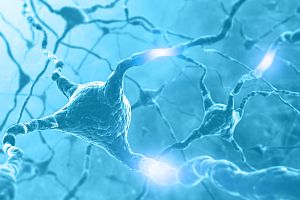How to Move at Your Best: Understanding How the Nerves in Your Body Work…so You Prevent Injury
 You are in touch with your body, but do you know how the nerves in your body actually work? These circuits run throughout your body — and when one becomes pinched or compressed, they can cause tremendous pain.
You are in touch with your body, but do you know how the nerves in your body actually work? These circuits run throughout your body — and when one becomes pinched or compressed, they can cause tremendous pain.
Neural pathways can become a chronic source for pain in some people. If you have been suffering from chronic pain because of a pinched or compressed nerve, there is hope. But, first you must understand how your nerves work.
What Makes Your Body React Quickly and Prevent Injury…
Nerve impulses are electrical signals sent by your brain that travel along the nerve channels throughout your body. The signals help your body’s cells communicate with muscles, tendons and other portions of your body. Your nerves are what make you feel pain, temperature differences, see what is around you, hear, and even move.
Inside your nerves are specialized types of cells, known as neurons that carry the signals. Inside your neurons are somas, which are about 4 to 100 micrometers in diameter. From these come the dendrites — tiny tendrils that span out from the soma. Dendrites receive the signals sent from other neurons in the body. From each soma, there is an axon — a long channel that sends out the signals to other neurons.
Neurons and their signals are super fast. In fact, one signal can pass from the brain to your feet within 20 to 200 milliseconds — as long as your body is operating right. This is what makes your body react quickly in situations such as jumping to avoid something or reaching out to brace yourself for a fall.
As nerve impulses move along channels in your body, their charges change and they develop electrical energy, which is measured in millivolts. Positive and negative charges of the neurons are what create the neuron signal. When the cell membrane outside of the soma is stimulated by these charges, it opens the chemical gateways in the body — allowing positive ions to enter the axon.
What Happens When Nerves Are Damaged or Pinched
If you suffer a physical injury and it damages your body’s nerve channels, you could feel extreme pain, muscle tension and radiating nerve pain out to other areas of your body. The same can occur with drug interferences, but instead of pain, your body will be numb because the toxins or chemicals are interrupting nerve channels. Toxins, like snake venom or local anesthetics, can actually stop nerve signals from being sent across the channels — preventing you from feeling pain or controlling your muscles.
Without nerve impulses, no one would survive. These essential parts of your body’s wiring are what help you recognize the world around you, react and protect your body. Neurons and nerve transmissions are an essential part of your body’s function — and they can let you know when something goes wrong.
Getting Help for Nerve Pain from a Bethlehem, PA Chiropractor
When a nerve becomes compressed, you can suffer from extreme pain and discomfort. Some patients suffer from limited mobility, and the pain can be so debilitating they cannot do daily tasks.
If you’re suffering from nerve pain or nerve conditions, Dr. Nicole Muschett, your Bethlehem, Pennsylvania Chiropractor, can help you uncover what you need. Meet with her for a no obligation nerve pain consultation and see what treatment options are available for your condition.